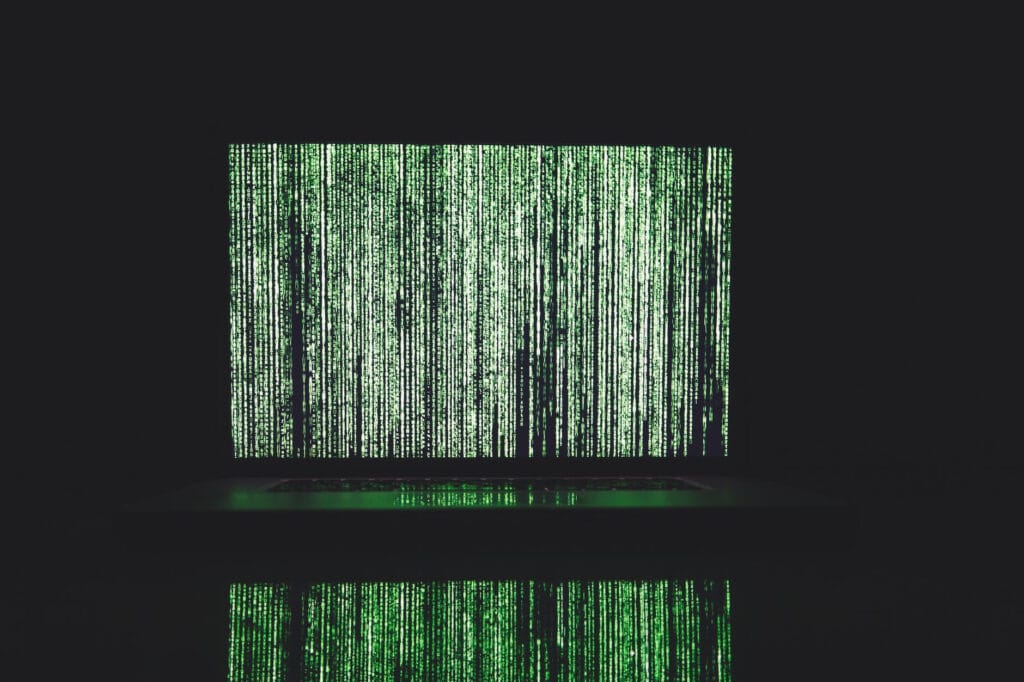There are two main types of creativity. We can see how creative ingenuity helps us…
This is the pessimist side of the AI coin. For the more optimistic version then see the future benefits of AI in our lives.
We live in a fast-paced world. We might someday marvel at the world we have created, or we might someday look back and wish we hadn’t.
This is akin to the thoughts going around today, as when AI goes into full swing (and we are only at early teenage years at present) those ponderings are only going to increase further.
Yet, as the technological revolution proved, and the industrial revolution before it, whether you like it or not you can’t really avoid it.
This is the AI (artificial intelligence) revolution.
AI is here whether you like it or not. We just need to be aware
Other than trying to live like a hermit or recluse (tried that, doesn’t work), we will inevitably be forced along with the general movement of the masses, especially in such a globalized world today.
And if you did go for the recluse way of life, then you will only be more confused to the world around you when you eventually come out of that hole. If we try to avoid being part of the progression then we simply fall behind further.
Of course, this doesn’t mean we should lead forward into blind progression. Not all advancement is actually improvement, and we should really be mindfully aware of what we are heading into before we head into it (the fundamental point to this article).
We need to remain ‘human’ in mind and feelings, and on the large part we will (at least for the foreseeable).
Although, being human might end up being quite different to what we know it as today, and to some that could be quite a troubling thought, as there’s really no stopping AI and the inevitable effects it will have on our lives, lots good, but some also quite potentially disturbing.
Let’s consider the latter in this article (for the positives of AI go here).
What if too many of us have already gone ahead fully-fledged into waking, nay, breeding this potential monster?! We had our warnings. Years ago. Movies painting dystopian, dramatic versions of what could become seem very Hollywood and over-the-top, yet The Matrix suddenly isn’t as far-fledged as it once seemed.


Of course, these worst case scenarios are always dramatized and the worst case scenario may never come, but we bring them up for good reason (disrupters know why).
It’s a bit like climate change. If we do nothing then it likely will manifest into something much worse than if we act on preventing that worst case scenario now.
It all becomes about awareness – training people to be ‘behavior and value’ aware at first.
For those familiar with Graves/Beck Spiral Dynamics (which Richly Wills uses to demonstrate progressive human value scales often) this would be typical of orange moving to green thinking, but to build humanistic, sustainable innovation as flexible problem solvers thereafter, we need to cultivate yellow plus thinking, the aim in Richly training programs.
With awareness we can start thinking about our current consuming and productive habits.
In other words, we need to get away from the notion of innovating to simply cut above the competition or lead to the ego-centric concept of being ‘comfortable’, as that just leads to a drone-mentality of doing, but without thinking of why were are doing it.
Why we inevitably brought about the rise of AI
Tech moves so fast these days it’s so hard to keep up. It’s easy to put our blinkers on and think that we have to learn this and that, do this or that, own this or that.
This is occurring at such a blistering pace that people have become instant gratification versions of themselves, trying to hurry around automating their life around all these possibilities, and not really ever learning (or being allowed to learn) how to filter it effectively.
You will never watch every movie or doc on Netflix, so don’t even try.
When we have the mentality of wanting so much, and wanting it now, then we overload ourselves.
We also tend to only reach low-hanging fruit to give ourselves a false feeling of achievement, only to then seek more instant gratification to make up for the lack of progress.
This combination of overload and mindless production can make us feel like we are going nowhere fast.
Why do we struggle to bite off more than we can chew?
It may seem like we can type, speak, run, think of a paradise setting we wish we were all, and keep up with the expanding noise around us, all at the same time, but actually our mere mortal human mind is only capable of so much input.
We as humans (not robots) only tend to have a maximum amount of capacity at any given time. Our brain only actually processes each command one after another, not-simultaneously. So even though we can seemingly process many things at once, they all come in a factory line, which can cause problems, namely a backlog and tiredness.
It’s why we have to focus on a hard task. We can’t just juggle and ride a bike at the same time as answering a call, placing stocks and watching a game of football.
You can try, and practice would certainly improve your ability Andy response time, but it won’t change the fact that you still have to sort out a backlog of processes. Afterwards, we only feel exhausted and have to fuel up on energy again to keep going.
We are simply not able to run 24/7 full blast.


So, then one bright spark (as humans do) thought about how they could get an edge, and it’s no coincidence that the early beginning concepts of AI started to emerge during the very early stages of ‘orange’ competitive thinking.
It’s human nature to try to survive, and seeking to improve gives us a better chance of that. It’s what motivates us to value ourselves.
Yet, we are also only mere mortals, and we have lots of emotional weaknesses, and whilst there’s some wonderful imaginations out there, we all still have blind spots.
So, along comes technology and the early seeds of AI are already envisioned. Tech developed rapidly for early adopters whose imaginations salivated at the possibilities.
‘What if I could be faster, stronger, better, more desirable?’
Notice the ‘I’ narrative at first. It started to grow collectively too.
‘What if we could make this fly, connect to the other side of the world, process payments instantly etc.?’
Then the thought hit.
‘What if one computer could do all of this? What if it was many computers doing different elements of learning how I tick, be able to learn as it went and feed back all that data for me to make better decisions?’
I guess the following thoughts of potential dangers escaped their adrenaline fueled minds.
Of course, you present a new idea and people take note.
If you present a new door then someone will be curious enough to walk through it.


As time passed there wasn’t just one door but so many you’d lose count, yet we still want to look through each one to see what gem is on the other side.
It’s no surprise people are exhausted today. Even without doing anything someone can just get exhausted at the thought of opening all these doors, yet they still want to.
This is where awareness really is key.
We simply don’t have the capacity as a human to open all these doors, yet someone, somewhere won’t say no, and this is why AI comes about.
It unquestionably raises the bar with possibilities, but also thousands of potential dilemmas in a double-edged sword effect.
It opens not just thousands more doors, but thousands more behind each of those doors, in a multiplying effect that soon gets out of control.
It’s not out of control for smart AI, but beyond our scope of managing, which presents a challenge.
We need to stay ahead of AI and not the other way around
We can’t ignore the fact that there’s going to be so many more new doors that will be ready to be opened each day, more than we would possibly be able to digest, so we need to really learn how to manage our temptations better.
We also need to realise that we are actually better off in life trying to be ahead and seek emerging possibilities rather than be behind and seek to catch up all the time.
There’s no fun catching a windmill or chasing a train, and this AI train is already at the station.
‘Don’t seek to learn how a CD works today, think about what will be the next emerging future-proof trend to get ahead rather than lag behind’.
Those who learned about drones or VR are likely streets ahead in their understanding before the masses catch up. Elon Musk is with EV. Those who ventured into Bitcoin, whether you think it is a speculative bubble or not, are certainly pretty well off today for being early birds.
While there may be those who may be wishing that life was as simple as it was in the 1970’s (which at the time may have felt hectic to those then), one fact of life is that it moves on whether we are ready for it or not, and AI is here and it won’t be going away.
So, we need to learn to let go of some doors. We simply don’t need to know everything about everything.
You may argue that this is the whole point of AI, to make our world easier to navigate the growing complexities. Yet, the complexities only grow when we add complexities, and AI technology is certainly that.
Plus we need to be wary of bowing down to AI and becoming lazy walle-s sitting around like drones, of which early signs are already apparent in our world with people glued to their phones.
The clear answer is to utilize technology moderately and responsibly, and this also comes with a loud message to developers of the technology.
Whilst there’s a plethora of dystopian (and utopian) possibilities that could emerge, the reality will be somewhere in the middle.
That said, one thing that is certainly going to become more and more important as technology advances further will be the ethical use.
There’s a very concerning impact of people’s health and human emotional well-being when becoming reliant on technology, a”so we need to ensure we develop solutions to social issues that are attached to the innovations that develop.
We also need to ensure that we have the potential to be able to control AI as it grows to ensure so many dystopian nightmares don’t come true.


Some may laugh off the suggestion that their smart toothbrush is going to attack them, but it’s more a case of seeing the bigger picture once the technology grows to exponential growth phases.
We need to be aware of them so that we see the importance of having a secure control over AI in the long run.
For those who think AI programs should just roam free without any control function then nice knowing you, but it’s too naive thinking, yet to have AI also controlled by a central network or government also sends chills up people’s spine.
In strictly worse case scenario plotting, if you thought 1984 was bad then think again, 2054 could make our fears over 1984 look like a walk in the park.
We may even long for the time before AI in some way, especially if we feel like we are controlled and governed by it, quite literally.
We may be concerned with just how little privacy we have today, but the future could be another level.
So with all that in mind, our human mind, and even if it sounds like scare-mongering, the point is that we clearly need to ensure we don’t lose the human touch.
We developed technology because we thought it would improve our life, our human species, not wipe us out or turn us into drones.
We need to remember simpler good times before AI and learn to unplug
There was a time when playing board games around with the family was a great joy. It’s something we remember and cherish about younger years. Or the joy of playing with a simple football, for hours on end, probably driving our Dad insane kicking the ball against the wall all the time.
We don’t want to forget the simple things, often the happiest memories of our life require no technology at all.
The irony is today we have access to all our digital memories yet very rarely seem to look through them as we know they are just there.
Before the camera we would most likely discuss and talk about our memories, with dinners around the table talking with family, rather than being glued to our phones (of course, they didn’t yet exist).
It’s not just the technology distracting though, it’s the impact it has on our attention spans in other ways.
Writing is a beautiful art form. One that can unlock so many thoughts and imaginative ideas that can bring the best out of us, but that too is slowly becoming less desired medium, with short form replacements (whether you like it or not) becoming the norm. I
Of course, in today’s fast-paced world you could argue short form writing and videos are easier to digest on the go, but the concern raises about the ability to unplug.
We might think we are saving time by reading shorter posts or watching videos instead, but we only end up forgetting what we read easier (as it’s not long enough for us to cement the content), lose our creative processes (as we digest passively), and actually end up just cramming in more content (as we look to fill the extra time in with more).
Not learning to unplug at times from technology leads to short attention spans. There’s no doubt about it, yet it’s also not surprising.
When you consider all the information out there, and the poor filtering systems, it’s no wonder people today move to quick short form means like video or Blinkist type quick reads.
It’s become such a trend that we even kid ourselves that we can learn everything in the magic numbers of 7 minutes for workouts and 15 minutes for reads.
‘Often the happiest memories of our life require no technology at all’
We may be seeking to digest more short form content in our lives to feel as though we have space to breathe whilst still making progress, but we aren’t even as fast-paced as the technology to come.
If we can’t find time to balance now then what about the future?
Well, we can try to take solace in how generations before felt that life was evolving quickly too.
Imagine the time when the horse and cart was around and then suddenly the first engine appeared. It will have been revolutionary at the time, like we were moving into the future, fast.
Well, we were. Few would’ve predicted the incredible impact on transport and on the speed of life and connectivity that it would have, and we might be dumbstruck to think of what might be around in 50 years, probably much sooner.
Technology is moving faster and faster. The horse and cart was seen as quite revolutionary at one point, and while past innovations have led to the blueprints of today’s more advanced technology, the advances were actually quite slow in comparison in the past.


Then a meteoric shift occurred in the past 100 years and that horse and cart soon became cars as we know them today, and in the near future, as people are becoming a lot more tech savvy and future minded, we will have advancements way beyond what we see as the norm today.
As such there will be those who don’t want to move full-paced into the ‘new dawn of AI’.
It may certainly be a frightening proposition to some struggling to come to grips with today’s technology (even if exciting to others). We can try to refuse to board the train, but AI will be influencing our lives more and more.
Therefore, we need to ensure we aren’t so fast to forget our deeper human virtues in a slower paced life – the real connections with people we love, the time to sit and enjoy together with no phone in sight.
The time we spend unplugged is often happier than the time connected, so if life tomorrow is going to be too fast to handle then it really makes sense to take ownership of it today whilst it’s largely more manageable that the fast-changing world will be.
We need to develop this habit of getting away from screens more than ever, and to get up off the couch and do something different, creative, or actually social. We aren’t born to be walle’s.
This isn’t to say that we will lose our minds and forget our virtues, but we only have to look at the last decade as a prime example of that already starting to happen.
Take lessons from our previous failures in understanding the effects of technology
It wasn’t that long ago that social media came into our lives, and for some of the good it has brought we need to also be mindful of the sometimes devastating effects it can have on our society.
For example, we knew social media was going to change things when we first realized we could now speak to friends from anywhere, but not just friends, anyone.
What we didn’t anticipate was, well, a lot:
- The dopamine effect on absorbing people into a digital vortex
- How the ‘like’ button would cause disastrous effects on peoples’ self-esteem
- How young girls would be committing suicide because of body image and perfectionism overload where they suddenly had to compare themselves to an impossible standard or were bullied online for not adhering to it.
- How humans would become the commodities rather than the products and services that advertising originally was selling
- How privacy was no longer private
- How we were suggested forced content that led towards divisions in society, protests and riots
- How fake news became so easy to spread that it would be hard to distinguish between real news
- How real news would then just be discredited as bias if it didn’t fit into an identity groups ingrained rhetoric
- How the easily offended became the offending
- How the ‘me too’ movement of good cause was manipulated into shaming other who had done nothing wrong and leading to people not trusting or believing each other whilst shadowing the actual legitimate cases of women who needed help
- How people wouldn’t really act like social beings anymore and spend conversations with friends taking selfies and being glued to their phones rather than communicating
- How people would be more bothered about raising their online profile that they would miss the very simple pleasures of life around them in the process etc.
And if we did see it we simply weren’t listened to. We were knee-jerkers.
Everyone was so busy trying to keep up, they didn’t think about how it might affect them and others around them.
They wanted a job at Google or Apple, not thinking for a second what they could be contributing towards.


Wanting to be part of the ‘gold rush’ is normal for humans competing and running full steam ahead, yet it’s usually also our biggest downfall, as we tend to be blinded to the negative side until hindsight shows us the obvious.
At first these raised issues weren’t so obvious, and whilst measures are starting to be put in place to help tackle some of them today, it does raise concerns about the potential dilemmas that AI could bring up that we haven’t envisioned yet.
It’s therefore really important to try and envision them now, to become a disrupting futurist.
Yet maybe what isn’t so obvious is that AI is already playing a part in generating some of the very same issues above.
Through AI being utilized within social media it has added to the social divide in countries that are still pretty new to globalization through biased social content that has influenced people to more extremes, and created more conflicts between heavy ‘orange’ power & status thinking groups and heavy humanitarian ‘green’ thinking groups (the plight for unity is causing lots of division in the process).
While technology has so many wonderful benefits to our modern lives, it also brings about blind spots, so take the social media dilemmas as an example of how we should tackle growing concerns with AI over time.
We may still be dealing with the correction of many of these social media issues, with the ultimate hope that it takes a different form over time and people learn to think as people again and not be so glued to the black mirror in front of them.
The same mistakes could be made with AI but at a much higher level
The hope for AI to take a positive direction will be the same as with lessons from social media failings, but should we be even more alert for AI dilemmas?
Let’s say those who aged and grew with social media eventually learn from some of these lessons, but then along comes a whole new generation that might not make the same errors of judgement on social media as it matures, but who might be jumping straight into AI in the same mindless way of utopian idealogies that have come before it, and failed time and time again (which people conveniently, and understandably, seem to forget in our quest to make life seem purposeful and valuable).
‘Scientists were so preoccupied with whether they could, they forget to consider whether they should’.
All we can do is remind people to be aware that maybe heading full throttle into such a potentially world-changing era isn’t such a good idea, yet we can’t deny that it won’t happen.
AI is already here of course, albeit in baby form, but kids grow quickly. We, ourselves, are already low-frequency data processors to an extent and don’t seem to notice, with so many already hooked, lined, and sinkered.
We have to face the fact that humanity is not just going to suddenly chill out and sit around trees and parks and take life as content and comfortable as it did before.
Some might, but even those who do take the comfort road will at some point become too accustomed to what is around them as the norm and want something new too (too much comfort only ends up diluting progress and productivity after a while).
Those who oppose it will die out naturally with age, and the generations of tomorrow will embrace it like it is the norm in a quest to become robotic high-intelligent versions of themselves.
Be ready to adapt as AI does, but don’t forget, we are human, slow down too
It’s not just AI that will change, our whole world dynamic is constantly changing through globalisation.
We’ve had to adapt to people integrating with others from all different walks of life who have very different principles, cultures, belief systems, conformational biases, and experiences to each other.
The disparity of wealth, knowledge, values, and vast differences in generation’s understanding of each other is only going to grow with AI added to the mix.
Your grandfather will not understand the world today, it will be so fast and alien to him, just like the world might be to you when you are older.
We should seek to remember that.
This speed of change has huge social implications.


Imagine growing older and feel like all the knowledge and wisdom you’ve amassed has no relevance towards the young of today.
That’s hard. It’s like someone decided to crank up the volume to 11 and things got just way too loud, way too quick, and blew away your lifetime collection of books.
Younger generations will also feel frustrated that they can’t relate to their ‘dinosaur’ parents who talk of Facebook early days either.
With a melting pot of differences through a disruptive era of change, adapting is key.
[hfe_template id=’7432′]
Adapting to our differences, to changing environments, and to how AI works. We simply have to accept change will be fast and adapt to it (not become led by it and a drone to it), and seek to develop ethical solutions we might need to ensure we don’t succumb to the dark side of A.I.
We have to become higher-level thinkers ourselves who can become comfortable with the uncomfortable to adapt quicker to changing paradigms.
This involves flexible problem solving, as each problem will be complex and unique.
To think that you go into fixing globalised issues with a ‘huge band-aid that fits all’ approach would be very naive (and quite typical of early ‘green thinking’ humanitarian riots and protests we see today, we need to be smarter than that with AI around).
We need to also ensure we do our best to stay human, to be mindful of our human qualities, relations, differences, and values, and to unplug away from ‘the matrix’ when possible. To spend more time together rather than less.
Just because the technology is there it doesn’t mean we have to use it all the time.
We need to remind ourselves of that however curious we might be about it.
Less certainly is more, as it means less energy wasted on trivial things.
This will be one of the fundamental challenges ahead, just like it is with social media addictions today.
There becomes a social responsibility to ensure that AI doesn’t take over our minds and suppress us humans to become so ‘droned-out’ we just can’t plug out of it.
For all the warnings though, there is also a huge amount of potential benefits if we collectively work together to get this right (we simply have no choice not to now).
So, all aboard the AI train, if you dare. It could be both an exhilarating ride and a challenging one, but either way, it’s a one-way ticket.
It’s not all doom and gloom though, as AI can also revolutionize the way we live and work. Check out the optimist’s side of the argument for needed some balance.









